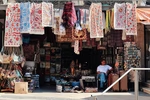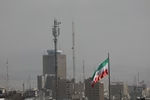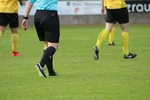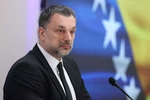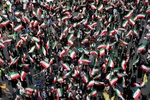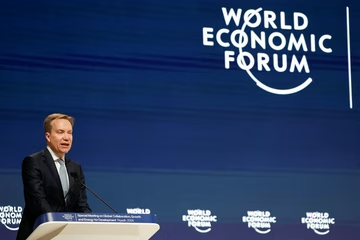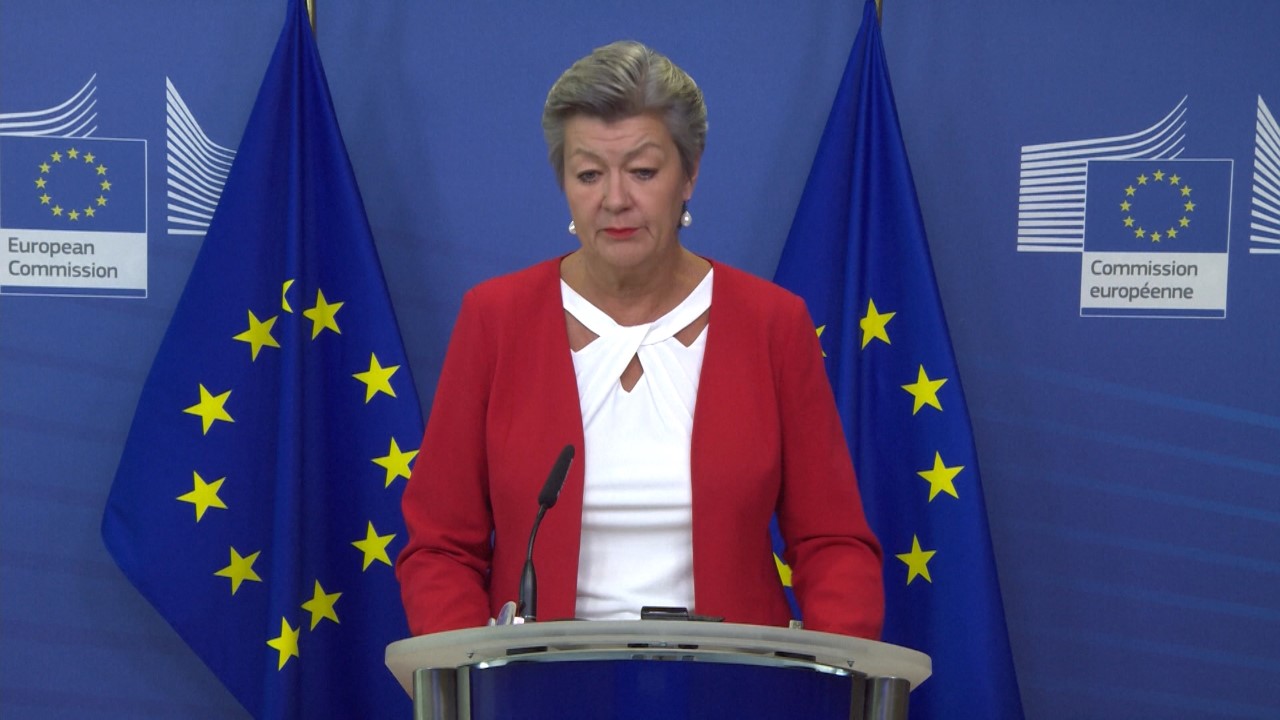
The external borders of the European Union "need to be protected, but without violence and by respecting human rights," EU Commissioner for Home Affairs, Ylva Johansson, said in the European Parliament on Wednesday, in reference to recently published footage of police violence on the Croatia-Bosnia border.
“Violence at our borders is never acceptable. Especially if it is structural and organized. We must protect our EU external borders, while upholding fundamental rights. And it’s possible to do both,” Johansson said during a debate on violent push-backs of migrants on what EU refers to as “external borders,” i.e. borders between EU and non-EU countries.
Earlier this month, several European media outlets published footage of violent push-backs of migrants, taken in a forested area on the Croatian border with neighboring Bosnia and Herzegovina, in which men in unmarked uniforms can be seen beating up migrants.
Croatia is on the so-called Balkan Route frequented by migrants mostly originating from Middle Eastern countries, who often cross the border from northeast Bosnia into Croatia in the hopes of traveling further west to reaching Slovenia, the closest country in the EU’s passport-free travel Schengen Area, and onward to other western European countries.
Although many human rights organizations active in the area have been warning for years about the border violence and illegal push-backs into Bosnia at the hands of Croatian police, the country’s authorities have consistently denied that any such practice occurs. EU rules ban wholesale expel of migrants caught on the border without allowing them to formally apply for asylum.
Similar footage made by investigative reporters was also shot on the border of Romania – where border police were seen chasing migrants back into Serbia – and Greece.
Shortly after the footage was made public, Croatia’s Interior Minister, Davor Bozinovic, confirmed that the masked men shown in the footage have been identified as Croatian police officers, with three policemen later suspended from duty.
The latest evidence, published by Amsterdam-based investigative news organization, Lighthouse Reports, suggests that all three countries take part in a systematic “violent campaign” to deny migrants access to asylum.
On Wednesday, Johansson said that she had talked with the Croatian, Greek, and Romanian interior ministers.
“The Croatian minister (Bozinovic) announced an investigation. Since then, Croatia’s national chief of police said that three policemen involved in violent push-backs will face disciplinary proceedings. And I received assurances that any necessary follow-up action will be taken,” Croatian state agency Hina quoted Johansson as saying.
“It is the duty of national authorities to investigate allegations and follow-up any wrongdoing,” she added.
Slovenia’s Foreign Minister, Anze Logar, who serves in the cabinet of right-wing Prime Minister, Janez Jansa, said that “effective control of the external borders is key to preventing security risks, illegal border crossing, and possible migratory pressure.” Slovenia currently holds the rotating six-month Presidency of the EU.
“All tools need to be used to monitor who enters the European Union… Push-backs must not be allowed on EU soil,” Logar added.
In the ensuing debate, MEPs from Social Democrat, Green, and Liberal parties slammed the European Commission for not doing more to protect human rights of migrants.
“Children are freezing and dying at Europe’s borders and your greatest concern is border protection and Schengen,” Dutch Liberal MEP, Sophie in ‘t Veld, said. German Social Democrat MEO, Birgit Sippel, said that “a systematic attack on human rights is taking place at the EU’s external borders” and called the footage “a scandal for the EU.”
On Wednesday, Sippel, together with MEPs Iratxe Garcia and Simona Bonafe – the top two leaders of the center-left S&D bloc which includes 146 out of 705 MEPs – signed a letter sent to the head of the European Commission, Ursula von der Leyen, expressing concern about the “highly alarming systematic nature of push-backs of vulnerable people, often involving violence.”
The letter pointed out that such practices are “especially alarming” in the Aegean Sea between Greece and Turkey, the EU’s border between Poland and Belarus, and on the Western Balkan route.
“It is also alarming that the latest investigations suggest that parts of the material used to carry out push-backs are seemingly paid for with EU money. This includes approximately €177 million that have been granted to Croatia for ‘migration management’ between 2014 and today,” they added.
Sippel, Garcia, and Bonafe said that merely asking EU member countries to investigate push-backs themselves is not enough, calling on the European Commission to launch infringement procedures against Poland, Greece, and Croatia.
On the other hand, right-wing MEPs criticized the European Commission for not being strict enough, calling for the putting up of a razor fence at EU’s external borders.
“I haven’t heard anyone complain about security checks in the European Parliament. Why wouldn’t we better protect Europe with razor wire and armed personnel to ensure security?” asked Danish MEP, Petar Kofod, a member of the right-wing Identity and Democracy group which controls 71 MEPs.
Croatian MEP Karlo Ressler (EPP/HDZ) said that human trafficking is one of the most profitable criminal activities and “an instrument of perfidious pressure on Europe.”
“The EU urgently needs a common response in which the policy of preventing illegal migration has no alternative… However, there is no room for violence against migrants in Europe, and any individual violation of human rights – especially human rights of the most vulnerable groups – is totally unacceptable,” Ressler – a member of PM Andrej Plenkovic’s ruling conservative party, HDZ, said. Ressler said that Croatia, “with a modernized police force and without erecting razor fences, is performing its legal obligation and duty to protect its own border and the border of the European Union.”
Suncana Glavak (EPP/HDZ) said that the Croatian police are doing “an excellent job” in protecting the territory of Croatia and the EU. She pointed out that Croatia has so far arrested over 3,000 traffickers at the border and prevented 30,000 attempts at crossing its border illegally, probably citing interior ministry’s figures. “Dear colleagues, Croatia is guarding your border too, the border of the European Union, in a legal way,” she added.
Kakvo je tvoje mišljenje o ovome?
Učestvuj u diskusiji ili pročitaj komentare





 Srbija
Srbija
 Hrvatska
Hrvatska
 Slovenija
Slovenija










